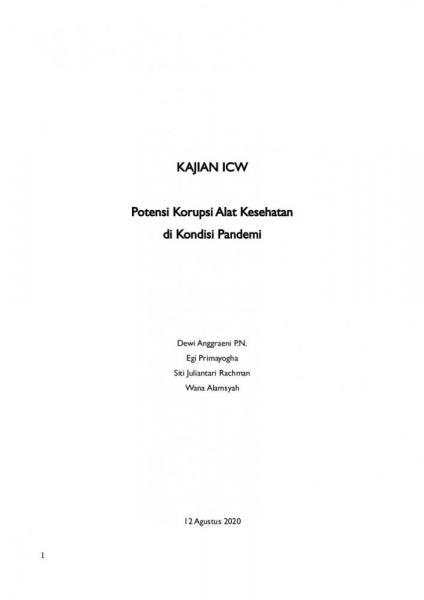The Potential of Medical Equipment Corruption In the Time of COVID-19 Pandemic

Indonesia is a country that is ranked first in Southeast Asia regarding the number of cases of Corona Virus Disease 2019 (Covid-19). As of July 22, 2020, there were 91,751 cases of Covid-19 in Indonesia. Meanwhile, at the world level, Indonesia is ranked 24th out of 215 countries with the highest number of cases due to Covid-19. In addition, based on data released by Amnesty International, it was found that there were 3,323 health workers who died in 79 countries. The number of health workers who died in Indonesia was 61 people.
With so many cases occurring in Indonesia, the government is required to immediately mitigate in order to minimize the impact caused by the pandemic. One of them is tracking people who have interacted with positive corona patients. To track down a number of people, the government is responsible for equipping health facilities and health workers with sufficient medical equipment (alkes) and medical material equipment (almatkes). This step must be taken as proof that the state is present in protecting its citizens. However, the situation on the ground still far from the expectation, pandemic condition has opened up the true characteristic of the country in managing disaster. Starting from the inconsistency of the public narrative delivered by the government, the promotion of anti-science anti-corona virus necklaces, to the issues of transparency and accountability which are only used as jargon.
Even though in a pandemic condition, the government cannot act alone. Support from the society is necessary, as an entity that supervises the planning and implementation of a policy, especially in the aspects of the availability of medical equipment and the medical material equipment. From the above-mentioned conditions, Indonesia Corruption Watch monitored and analyzed related to the procurement of medical equipment at the Indonesian Ministry of Health and fraud potential related to the procurement of medical equipment by the government. This is important to ensure that the allocated budget is aimed right so that the potential for corruption does not occur.










